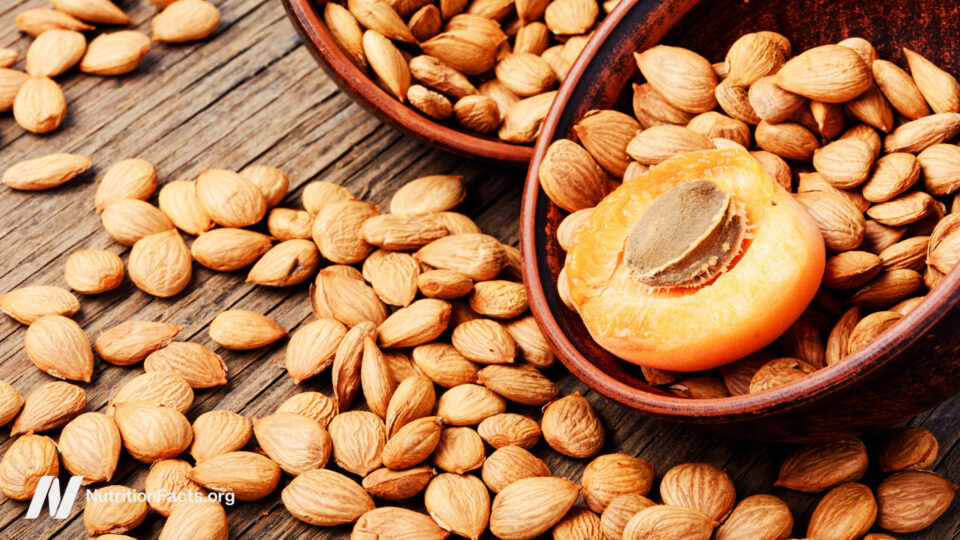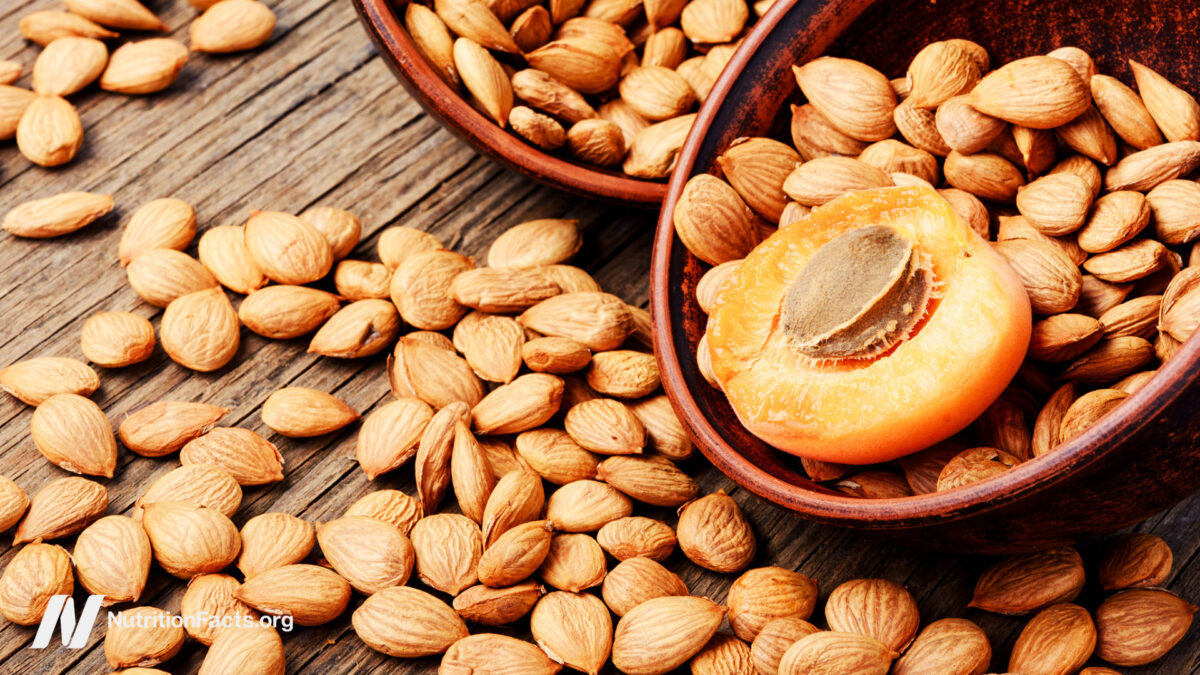

If you choose alternative cancer treatments, do you live longer?
In addition to conventional therapies, “does the use of alternative medicine predict survival from cancer?” Even if the alternative therapies themselves were useless, one might predict users would live longer because they tend to have more hope and a greater “will to live,” and are nearly three times as likely to believe their cancer is curable even if it isn’t. But, researchers found that death rates were actually higher in alternative medicine users. When they followed up with them years later, they found that 79 percent of the alternative medicine users had died, compared to 65 percent of non-users. If the alternative medicine users started out sicker, though, that could certainly explain why. And, in fact, they did tend to be sicker, but the difference didn’t reach statistical significance. The bottom line is that the association between the use of alternative medicine and shortened survival is not necessarily cause and effect, but it’s possible some of the alternative modalities may have indeed been harmful, as I discuss in my video Do Apricot Seeds Work as an Alternative Cancer Cure?.
Thanks to the internet, there has been a resurgence of older complementary and alternative cancer treatments, such as laetrile, which is a compound derived from amygdalin, a natural cyanide-containing substance concentrated in apricot kernels, the seeds inside the pits. To skirt regulations, it was branded as “vitamin” B17, but it’s not a vitamin at all. What’s more, the “lack of laetrile’s effectiveness [against cancer] and the risk of side effects from cyanide poisoning led the Food and Drug Agency (FDA) in the US and the European Commission to ban its use” decades ago. However, you can still buy it on the internet, just as you can still purchase the apricot kernels themselves. Is there any harm in just giving them a try? Yes, because of cyanide intoxication.
In a typical case report, a woman ate some apricot seeds. She had gotten them from a health food store, so they had to be healthy, right? Twenty minutes later, she had trouble breathing and slipped into a coma. Some calculations were made, and it appears an eight-ounce bag of apricot kernels is enough to kill six people if consumed in one sitting. Therefore, “the continuing sale of apricot kernels as health food is troubling.”
In another case, a person had been consuming a quarter-teaspoon of ground apricot kernels daily and had just switched brands the day before she ended up in the ICU. Thankfully, she survived, but others are not so lucky. For instance, a 17-year-old was dead within a day from severe cyanide poisoning, which can result in coma, convulsions, and cardiovascular collapse. That’s why calling laetrile a vitamin is so insidious. In yet another example, a 32-year-old woman arrived at the emergency room in a coma. Was she on anything? No, she had just taken some “vitamin supplements.” Thankfully, a relative showed up to the ER with them: so-called vitamin B17. The patient was given a cyanide antidote and survived. But, had that relative not brought the B17 or not shown up at all, the case “could have proved fatal.”
So, “cancer patients should be informed about the high risk of developing serious adverse effects due to cyanide poisoning after laetrile or amygdalin,” the natural compound in apricot seeds. Especially at risk may be those taking mega-doses of vitamin C or those not getting enough vitamin B12. The body has two major ways to detoxify cyanide. It can attach it to vitamin B12 to form the supplement form cyanocobalamin, which can be harmlessly eliminated when we pee, or it can use the amino acid cysteine, which is also used to metabolize vitamin C. So, if you take too much vitamin C, your levels can drop and you can end up more vulnerable to cyanide toxicity.
Conventional cancer treatments, such as chemotherapy, can be toxic, too. It’s all about benefits versus risks. Yes, amygdalin can block the growth of certain cancer cells in a petri dish, although it doesn’t appear to have any anti-cancer effects against tumors in laboratory animal. But you don’t know what happens in people until you put it to the test and do a clinical trial of amygdalin in the treatment of human cancer. For those results, see my video Does Amygdalin or Vitamin B17 Work as an Alternative Cancer Cure?.